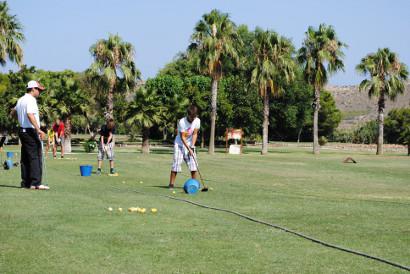7 Tips that Help Your Language in a Summer Camp Abroad
 Summer camps abroad are becoming an increasingly popular choice for both children (ages 5-18) and their guardians.
Summer camps abroad are becoming an increasingly popular choice for both children (ages 5-18) and their guardians.
The extended summer break provides children a wonderful opportunity to experience new cultures, improve at sports or other activities, and enjoy a well-earned break with friends. Parents see the educational opportunities available and encourage children to take part.
I work at a summer school in Alicante Spain and am fortunate enough to help mentor 14-18 year olds and teach them the Spanish language.
 Our ISC Spain program promotes the Spanish language and culture through educational, sport, cultural, and leisure activities.
Our ISC Spain program promotes the Spanish language and culture through educational, sport, cultural, and leisure activities.
I am amazed how fast young students learn the language when they visit. It also made me realize how different the children's experience is at a summer school - where they learn or improve a language as part of a cultural event, as opposed to a classroom task.
The benefits of a summer school are huge for students. Their cultural experience ranges from reading city signs to find their way, to absorbing the language by listening and engaging with the local people.
 As students mix with locals, they will become interested in their customs and traditions. Taking part in local activities and sports means a unique integration into the community and gives students a chance to establish a network of friends with whom they can communicate in their language.
As students mix with locals, they will become interested in their customs and traditions. Taking part in local activities and sports means a unique integration into the community and gives students a chance to establish a network of friends with whom they can communicate in their language.
The environment of learning becomes one with the culture. Here are my seven top tips to help young students and their guardians learn a language when visiting a summer camp abroad.
7 Language Learning Tips
1. Visit all the local shops and services when you first arrive. Make a note of their name in the language and only refer to those services in the native language.
2. Revise and learn three good ways to open a conversation. This will encourage you to talk to people and communicate in the native language.
3. When eating at restaurants, engage with the waiters and ask them to explain phrases you might want to know. They are friendly and happy to help.
4. Take part in local activities and events. Immersing yourself in the culture will help you learn the language and customs.
5. Keep a language guide handy at all times and study it whenever you have a free moment.
6. Always listen to the conversations around you. Try and pick up on what other words mean and associate them to things which are familiar.
7. Befriend a member of the local community and spend time with them. They can help you understand the culture and communicate in the language you want to learn.
A summer camp abroad will be an experience students will remember for years to come, especially if they have forged friendships that continue afterwards. And, the acquired language will have many benefits for their personal and work life.
